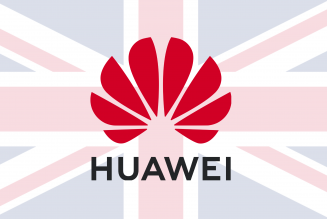Digital technology has not only profoundly altered the way we live our lives, but also changed the pace of communication and commerce, allowing us to do everything, immediately. While this has effectively impacted every aspect of our lives, it also inevitably changed the way we are targeted by fraudsters.
Along with the world transforming to digital, so has crime. According to an Accenture report published in 2019, the total value at risk of cybercrime over the next five years is an estimated $5.2 trillion. The average cyberattack costs $13 million, according to the same report, with phishing, social engineering and stolen device crime making up $2.4 million of the cost of an average attack.
In West Africa, cybercrime is on the increase, with a recent analysis by TheCyberDiplomat stating that cybersecurity is more often than not considered a luxury rather than a necessity in many African economies. The report also concludes that the cybersecurity budget in many organisations in the West African region is reported to be less than 1% of IT spend, while many organisations do not allocate any budget to cybersecurity.
In addition, in a mobile-first digital landscape such as the West African region, the proliferation of mobile devices and mobile internet penetration has opened the door to mobile cybersecurity threats. Mobile users are at risk of threats such as SIM card swap, account takeover, man-in-the-middle and phishing attacks.
Shift in mobile engagement
According to the GSMA, by 2025, there would be 248 million unique mobile subscribers in West Africa, up from 185 million at the end of 2018. The report further states that the young consumer base in West Africa will also trigger a profound shift in consumer mobile engagement.
Therefore, mobile authentication is becoming increasingly paramount in this market, not only as a means to effectively counter mobile cybersecurity threats, but to simultaneously enhance customer experience (CX) and increase engagement with brands.
Mobile authentication is the process of verifying a user’s identity through their mobile device. This verification can be done seamlessly, without interrupting the customer experience. In practice, this means that organisations can streamline processes while simultaneously protecting their business and their customers from cybercrime.
Mobile authentication services verify users’ identities through different means, including Silent Mobile Verification (SMV), Know Your Customer (KYC), SIM Swap Detection and Instant Form Filling.
The advent of smartphones has led to a steady rise in mobile shopping, with recent data showing that consumers are becoming more comfortable with completing transactions on their phones. This is in no small part due to the increase in mobile security and customer trust.
Multiple advantages
The advantages of proper mobile authentication are multiple, as it touches upon the entire customer journey. By creating a safe mobile environment, organisations can increase user trust and safety. Mobile verification continuously validates the customer’s identity throughout the customer journey. This increases user trust and safety by keeping their account protected.
Mobile authentication can also facilitate faster and more convenient onboarding. Silent verification can ensure customers are who they say they are during the onboarding process, and instant form filling speeds up the process.
Furthermore, mobile authentication can also lead to reduced cart abandonment, as instant form filling makes the shopping experience more streamlined and convenient. At the same time, mobile authentication can ensure GDPR compliance, as authentication services are based on a user-centric approach, ensuring that neither companies nor mobile network operators learn anything new about the end-user, apart from the information they already hold.
Mobile authentication services help to keep customers protected while improving user experience and increasing engagement. Mobile authentication protects user information by providing a strong authentication layer consisting of three real-time identification and authorisation services. These are used to safeguard online transactions for user-facing applications and mobile websites, resulting in an improved and more secure user experience.
By Filip Filkovic, Regional OP Manager at Infobip West Africa










